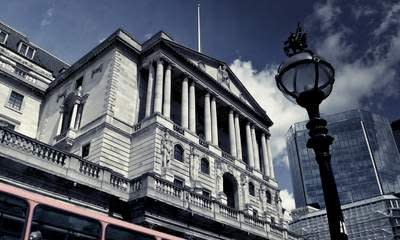Carney Comments Boost Shares But Pound Sinks

UK stocks are making further progress in recovering value on Friday after the FTSE 100 hit its highest level for almost 11 months on hopes of Bank of England stimulus.
While the pound fell back, the FTSE surged as governor Mark Carney signalled on Thursday that interest rates could be lowered even further than their record 0.5% benchmark - with further quantitative easing also not ruled out.
It closed Thursday's session 2.3% or 144 points higher at 6504 - its highest level since last August, registering a third day of big gains for the financial markets.
The FTSE 250 - a stronger barometer of the health of UK businesses - gained 1.7% to stand at 16,271 - though that remained very short of its pre-EU referendum result level of 17,333.
The pound tumbled back close to the 31-year low against the US dollar that it saw just after the shock Brexit announcement.
It fell just over a cent to 1.33 US dollars and 1.20 euros and made little upwards progress on Friday.
The FTSE 100 and FTSE 250 both rose on opening - by 0.6% and 0.5% respectively - tracking gains in Asia.
There were similar increases on other major European stock markets.
Commenting on the surge in value following Mr Carney's remarks on Thursday, analysts suggested there were other factors at play.
Tony Cross, market analyst at Trustnet Direct, said: "As if the market's behaviour in the wake of the Brexit referendum couldn't get any stranger, the FTSE 100 has now pushed out to above 6,500 for the first time since before the Chinese equity market shock last August."
But he said the twists and turns in the Conservative Party leadership contest were adding to the pound's woes.
"This has added to the unsettling of the pound again today and while this is good for stocks in the short term, the concern is that these exit negotiations need to be very carefully managed," he added.
Capital Economics economist Julian Jessop said "several plausible reasons" were behind why markets had recovered after the Brexit decision, some of which may be temporary.
"More positively, though, we think that the markets are right to recognise that Brexit, and especially some form of Brexit-lite, would not be as damaging as so many were arguing ahead of the referendum," he said in a note.

 Yahoo News
Yahoo News 